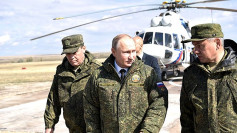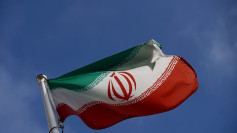Russia is preparing to mass-produce its "Oreshnik" intermediate-range ballistic missile (IRBM), President Vladimir Putin announced Friday during a meeting with top defense officials. The missile, which was recently deployed in an attack on the Ukrainian city of Dnipro, represents a significant escalation in the ongoing conflict.
"There are currently no means of countering such a missile, no means of intercepting it, in the world," Putin said during the televised meeting. "And I will emphasize once again: We will continue testing the latest system."
The missile is designed to carry multiple warheads capable of hitting different targets simultaneously, a feature usually associated with intercontinental ballistic missiles (ICBMs). While Ukrainian officials have referred to the "Oreshnik" as an ICBM, both U.S. and Russian authorities have classified it as an IRBM. Security experts noted the missile's advanced capabilities could pose significant challenges to existing air defense systems.
Ukrainian President Volodymyr Zelensky condemned the missile strike and called for an international response. "When someone starts using other countries not only for terror but also for testing their new missiles through acts of terror, then this is clearly an international crime," Zelensky said in a video message posted on Telegram. He added that Ukraine's defense officials were in talks with international partners about developing "new air defense systems" to counter emerging threats.
The Kremlin has framed the missile's deployment as a direct message to the West. Kremlin spokesperson Dmitry Peskov said, "The reckless decisions and actions of Western countries - which produce missiles, supply them to Ukraine, and subsequently take part in carrying out strikes on Russian territory - cannot go unanswered." He added that Putin's statements on the missile were "comprehensive, clear, and logical."
The missile strike followed the Biden administration's recent authorization for Ukraine to use long-range missiles against targets inside Russian territory. Despite initial concerns about the potential for escalation, White House Press Secretary Karine Jean-Pierre said Friday, "We haven't seen any indications of Russia preparing to use a nuclear weapon in Ukraine." She reiterated the administration's position that "this war can end today if Russia stops its aggression."
Putin also disclosed that Russia is working on several similar missile systems for future testing and production. "Based on the test results, these weapons will also go into production," he said. "That is, we are developing a whole line of medium- and shorter-range systems."
The "Oreshnik" missile's operational use has heightened international concerns. Two U.S. officials and one Western official told CNN that the missile carried multiple warheads, marking a potentially historic moment in modern warfare. Poland's Prime Minister Donald Tusk, a staunch ally of Ukraine, described the conflict as "entering a decisive phase."
In the face of escalating missile threats, NATO and Ukrainian officials are set to meet next week to discuss bolstering air defenses and addressing the broader implications of Russia's missile technology. Zelensky has emphasized the importance of global unity, warning that Moscow's aggressive tactics could extend beyond Ukraine's borders.






